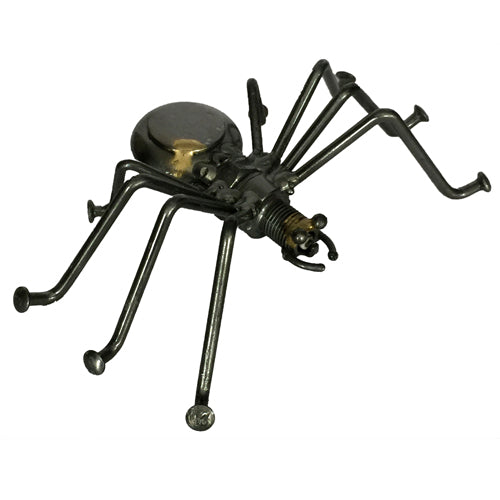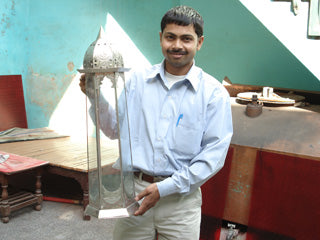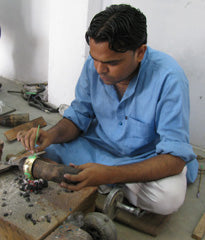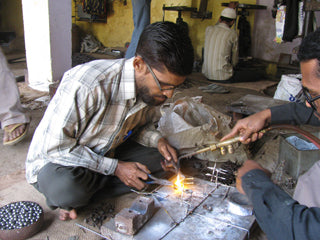OWP
Junkyard Spider Sculpture - Recycled Metal
Junkyard Spider Sculpture - Recycled Metal
Couldn't load pickup availability
Spiders are a symbol of Good Luck...and here are some other reasons that spiders are beneficial:
1. They eat pests that feed on crops and help to keep your home insect free.
2. By eating these pests they help to prevent the spread of diseases.
3. It is rare for a spider to attack a human.
4. Their venom is often used in medicines.
We don't guarantee that our spiders will do all these things, but they are made from scrap metal and help to keep the planet clean. They also make a cute adornment that your friends and family will talk about and are an attractive decoration for the home or office. It shows that Upcycling is a beautiful thing.
- Measures 1-1/2" high x 4" wide x 3" deep
Handmade in India and fair trade imported.
Please read our extended description below by clicking on "About the Artisans" for more information on how these wonderful eco-friendly items are made, and for more information on the artists who make them.Share
About the Artisans
About the Artisans
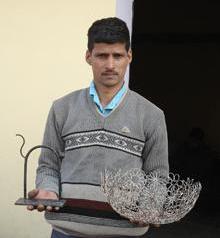 This item was handmade in India in a workshop sponsored by Noah’s Ark, an NGO that offers funding for raw materials, machines and workshop repairs to 100 artisan groups across India. In exchange for assistance, workshops must prove that all employees are paid fair wages for their products and work in safe and clean conditions. Noah's Ark also offers free classes in capacity building to its network of 600 artisans, a rigorous quality control check, and runs education and water sanitation projects to benefit the artisans’ children and the rest of the community. The company has established 20 new workshops in the past 15 years, and all employees are paid 10-15% above the local rate.
This item was handmade in India in a workshop sponsored by Noah’s Ark, an NGO that offers funding for raw materials, machines and workshop repairs to 100 artisan groups across India. In exchange for assistance, workshops must prove that all employees are paid fair wages for their products and work in safe and clean conditions. Noah's Ark also offers free classes in capacity building to its network of 600 artisans, a rigorous quality control check, and runs education and water sanitation projects to benefit the artisans’ children and the rest of the community. The company has established 20 new workshops in the past 15 years, and all employees are paid 10-15% above the local rate.
Noah’s Ark was founded by Mr. Samuel Masih in 1986 back before anyone was familiar with the concept of “Fair Trade.” A businessman from Moradabad, India, Masih observed his other business associates were taking a personal commission from the local metalworking artisans, on top of paying them very low wages for their work. This led to a distrustful and exploitative work environment, and inspired Masih to create a more collaborative environment based on trust and mutual respect.
After two difficult years, Samuel explained his objectives to Mrs. Sullivan of Sullivan Florist in the United 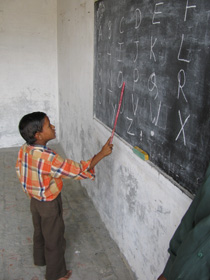 States, who immediately placed an order for US$ 70,000. This led to collaborations with other international companies, including Tear Fund, Artisanat-SEL, Goed Werk, TEAM and Oxfam Australia. Today, the company produces a US $1.5 million in exports and funds Noah's handicrafts and Welfare society, an artisan association created in 2000 to promote artisan welfare, capacity building, childhood education and social work.
States, who immediately placed an order for US$ 70,000. This led to collaborations with other international companies, including Tear Fund, Artisanat-SEL, Goed Werk, TEAM and Oxfam Australia. Today, the company produces a US $1.5 million in exports and funds Noah's handicrafts and Welfare society, an artisan association created in 2000 to promote artisan welfare, capacity building, childhood education and social work.
Dimensions
Dimensions
Care information
Care information
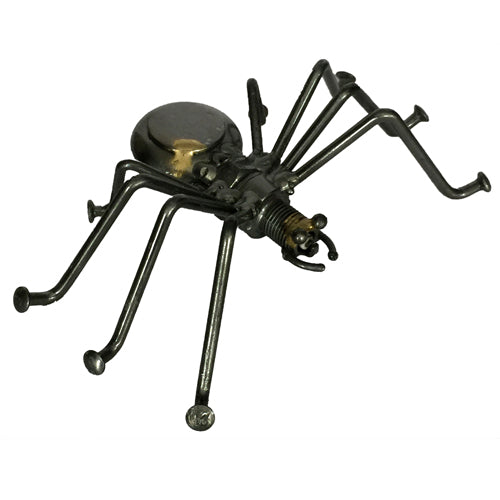
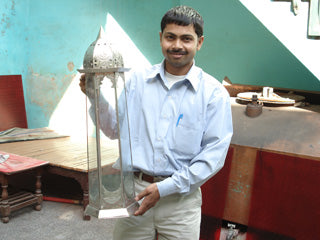
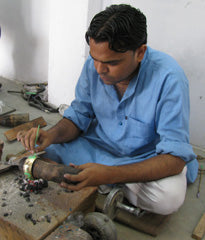
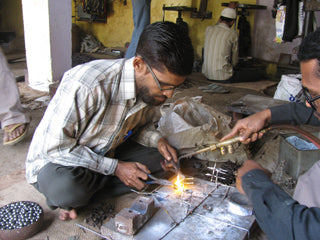
Subscribe to our emails
Subscribe to our mailing list for insider news, product launches, and more.

